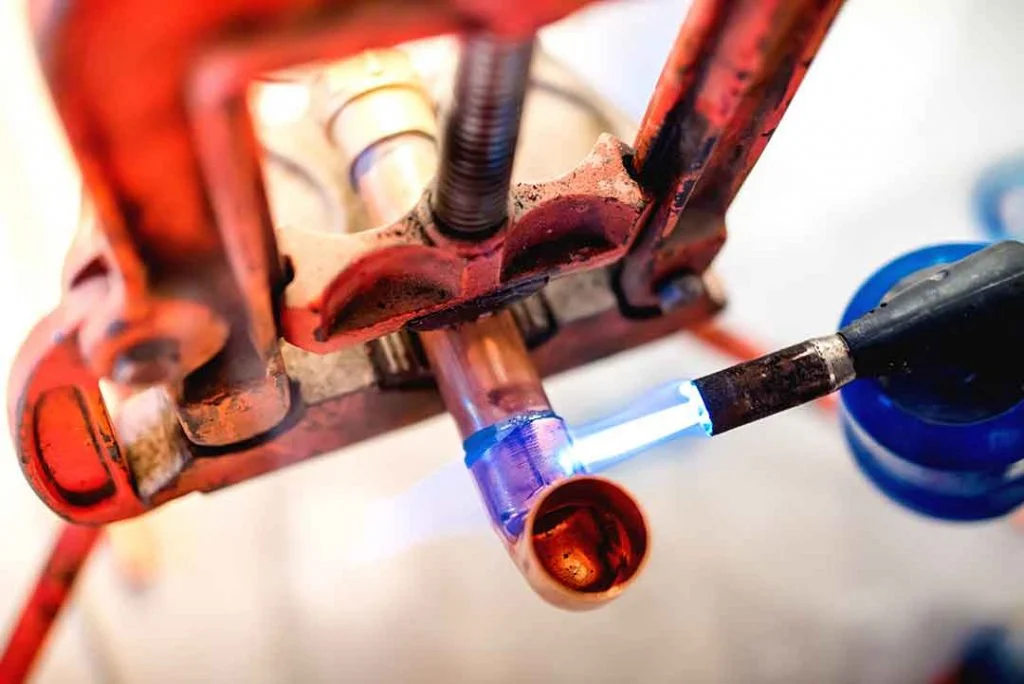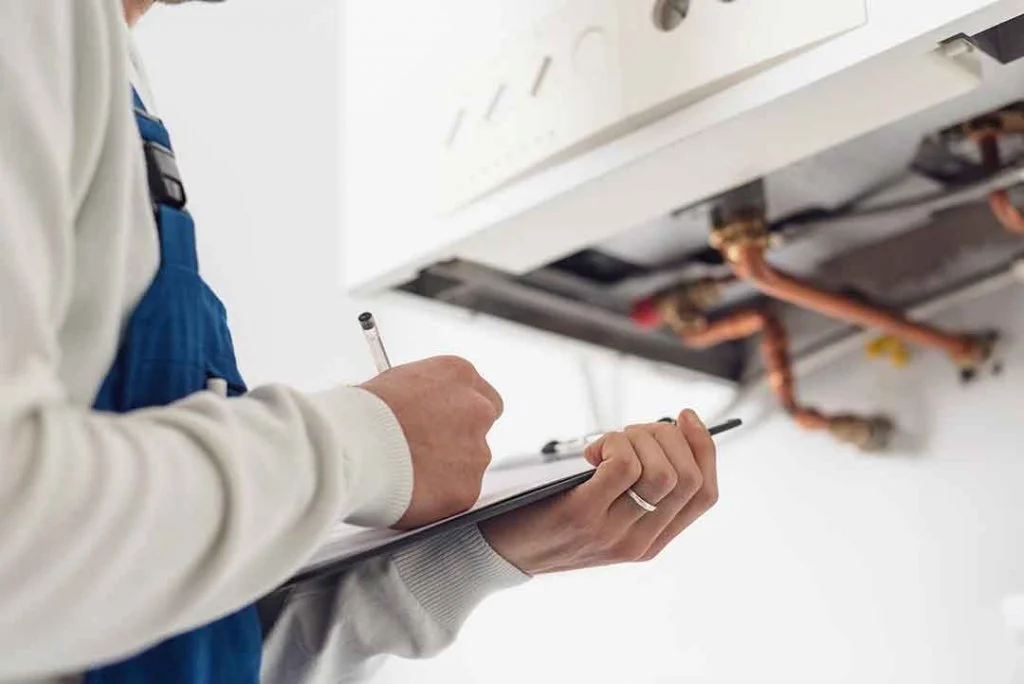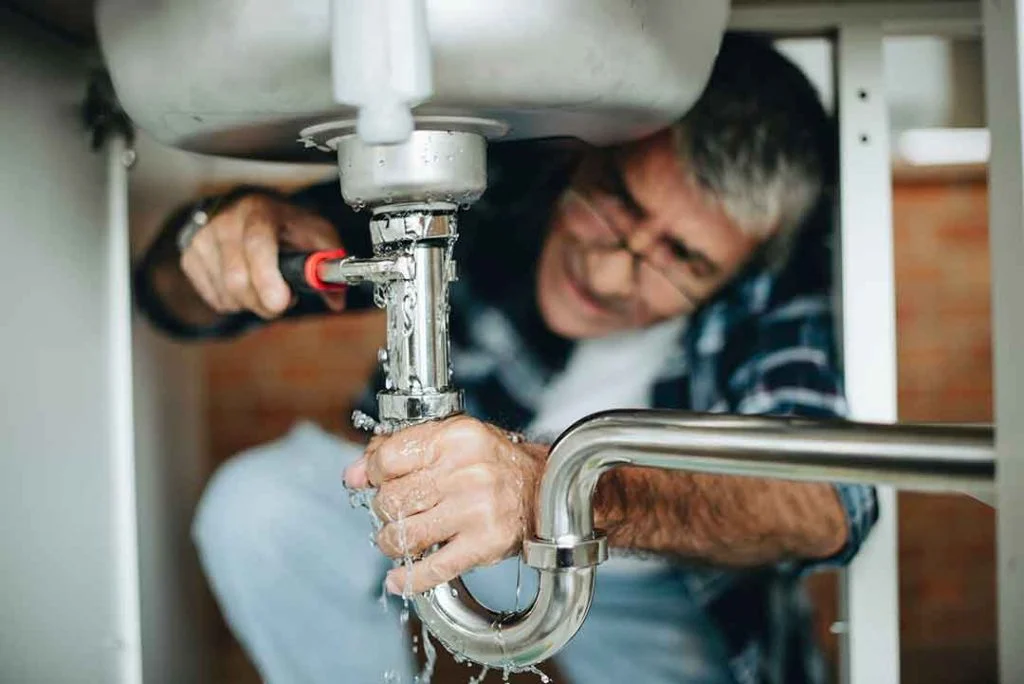What insurance do plumbers need? This is a question we get asked all the time after dealing with hundreds of plumbers Australia-wide.
It gets very confusing when you are looking through online forums, getting quotes online and talking to people in the industry and no one can give you definitive answer on what insurance policies you should have and what’s an absolute must.
The truth is a lot of insurance conversations get lost in translation. Before we dive into some general information we want to recommend that should you need specific information about your business then speak with a broker. This is the only definitive way to find out exactly what insurance you need.
Now that we’ve gotten that out of the way, we are going to dive right in and build the
plumbers insurance handbook.
Do plumbers need insurance?
Let’s check this one off the list first. We all know those businesses and sub-contractors that don’t have any insurance. Whether they don’t believe in it, they think it's over-priced or they think that they don’t need it. If you are starting a business or you currently run a business and are considering this route, we recommend avoiding this at all costs.
The plumbing industry over the last couple of years plumbers have been one of the trades with the highest amount of claims in all of the construction industry. This is for both the frequency of claims being made and the costs of damages that have been claimed.
So if you think that you can you can run your business without insurance, it could come to an end very quickly if a claim was made against you.
What insurance should plumbers have?
There are a couple of key policies that we recommend plumbers have. Some can be dependent on the type of work that you are doing however, in order of importance we recommend the following insurance for generic plumbing contractors:
Public Liability Insurance
This is usually the most important policy that a plumber needs. If you are in Victoria, you can’t obtain or renew your plumbing license without having this policy in place. Victorian plumbers also require a specific endorsement to be applied to their public liability insurance so it’s important that if you are applying for your license in Victoria then make sure your policy complies with the VBA requirements.
Management Liability insurance is designed to provide protection to both the business and its directors or officers for claims of wrongful acts in the management of the business.
A business insurance pack can provide cover for your business premises and contents, against loss, damage, theft or financial loss from an insured interruption to the business.
Purchase up to six products under one Business Insurance Package.
This is usually the most important policy that a plumber needs. If you are in Victoria, you can’t obtain or renew your plumbing license without having this policy in place. Victorian plumbers also require a specific endorsement to be applied to their public liability insurance so it’s important that if you are applying for your license in Victoria then make sure your policy complies with the VBA requirements.
Public Liability insurance for plumbers covers your negligent acts against personal injury and property damage. This could be something as minor as carrying a ladder into a customers house and putting a hole in the wall to installing a pipe that’s not fitted correctly that bursts behind a wall and floods a house.
As you can see, this type of policy is quite important to have in place and can protect you from some large loss claims.
Who is the best public liability insurance for plumbers?
This needs to be considered on a case by case basis as the type of work that you do needs to be considered in the type of policy that you have and the insurer that you place your cover with.
For example, a civil plumbing company would not have the same insurance a domestic or residential plumber. The same can be said for a gas fitter and roofing plumber.
An overall general consensus of who is the best public liability insurance for plumbers in our opinion based off current cover at the time of writing this post would be Hollard Commercial Insurance. This is for domestic and commercial plumbers everywhere other than Victoria only and plumbers taking on light commercial work under $100,000 in contract value.
If you are based in Victoria, a close second would be AIG.
Why is Hollard Commercial the best public liability insurance provider for plumbers?
There are 3 key components that we think really sets Hollard apart from the competition and these are:
- They offer a 30 metre height limit instead of most other insurers offering a 10 or 15 metre restriction. We understand that jobs come and go and the last thing that you’re thinking of is the restrictions applicable on your policy on a 2 storey home compared to a 3 storey or commercial premises. The broader cover is our preferred option so that you can focus on running your business.
- Excavation work covered up to 5 metres. I know what you’re thinking, what plumber needs to dig 5 metres or more. We think this is very beneficial as once again it gives your broader cover but it also doesn’t apply a weakening of support exclusion which limits the cover provided to the surrounding properties. To read more about the effects of cheap public liability insurance, we have written a separate article which outlines removal and weakening of support exclusions being placed on excavation risks.
- Affordability. We specifically put this option last although price is usually one of the most important factors but we put this last specifically because we know what you’re thinking – broader cover means you pay more money. In this instance, wrong! Hollard continually come in as one of the most affordable insurance providers for plumbers.
These 3 factors is why we have nominated Hollard as the best public liability insurance policy for plumbers (excluding Victorian plumbers).
What isn’t generally covered under a plumbers public liability insurance?
Across most
public liability insurance policies things like faulty workmanship and professional advice generally aren’t covered by this type of policy. Faulty workmanship is work that’s been completed that doesn’t result in personal injury or property damage occurring. For example, if you installed a toilet and later found out that the incorrect toilet was ordered, then as personal injury and property damage hasn’t occurred in this instance this would be considered faulty workmanship and not covered by this policy.
Professional advice we will move into under the next policy which is professional indemnity insurance.
What information do you need to supply?
As the market continues to harden for plumbers insurance policies, the more specific information that is required will ensure that you have a suitable insurer covering you that understands the work that you are doing. The worst thing that you can do is try and provide no information at all, expect the cheapest premium, and then expect the best claims service if and when a claim occurs.
- A breakdown of the work that you are doing. For example, a % split between residential/commercial, whether you are doing mainly renovation work or new construction
- Whether you have current contracts in place with head contractors for specific jobs
- Your expected annual turnover
- An approximate estimate of annual payments being made to sub-contractors
- How long you have been in the industry for
- Whether you have made any claims
- Whether you work on any high risk sites such as airports, mining and power plant facilities.
- Whether you are doing any civil construction type works
Professional Indemnity Insurance
Professional indemnity insurance for tradies can be a bit touch and go as most trade contractors don’t think they need it in any capacity. In some circumstances, you do and should have this in place. A plumbers PI insurance will usually be required if you are issuing compliance certificates or doing an inspection and providing a report.
If you go to a job and recommend the appropriate way to fix the issue and then go on to write out a quote for the works, this is not triggering a professional indemnity risk. If this is all you are doing then no, you most likely don’t need professional indemnity insurance.
If however, you go to a customer's house and inspect the property and its pipe work and charge a fee for the supply of a report to the customer on your findings then yes, you should have professional indemnity insurance in place.
The same can be considered for customers issuing water compliance certificates and gas compliance certificates.
Why do plumbers need professional indemnity insurance?
PI insurance has a broad definition of providing cover for any financial loss which is caused by your negligent acts. This can be for advice that you provide, or fail to provide. It could also be in situations where you have issued a compliance certificate and it was then later found that the installation didn’t comply with code regulations.
It is also good practice to have this in place as personal injury or property damage needs to occur for public liability insurance however PI insurance only requires a financial loss to occur.
Portable Tools Insurance
Along with most other trade occupations, plumbers invest a large amount of money in getting set up with a suitable fit out of tools to run your business. When you’re carrying around thousands of dollars of equipment at any one time this increases your risk of theft and also damaging these items should your vehicle be involved in an accident.
A common misconception is that your motor vehicle insurance will cover your tools if you’re in a car accident. This is incorrect, some policies may offer a $500 limit for tools and thats about it. This also depends on your cover, if you have a private motor policy and not a commercial motor insurance policy then it will likely have an exclusion for tools of trade.
Tools insurance can be insured in two ways:
- Unspecified tools cover will cover a dollar value that is set (for example $10,000) and only cover up to $3,000 per individual item.
- Speficied tools cover is required for any items that are over $3,000 in individual value.
What other insurance do plumbers need?
The other policies that plumbers generally need are all quite self explanatory and consist of the following:
- Motor vehicles policy
- Trailer insurance
- Personal accident and sickness
We usually recommend having these policies insured through a broker as when all insurances are considered, we can provide collect advice on all aspects of your insurance policies. For example, some of our commercial motor insurance policies have an added benefit to automatically cover trailers up to $5,000 without taking out a separate policy.
Some of the other key benefits will typically allow for larger modifications and attachments. For example, if you have a better bolted down to your vehicle we can add this to your policy as an attachment so that it is considered in the market value of your vehicle if something was to happen.
Personal Accident and sickness insurance for plumbers
This policy is generally considered or required by some head contracting companies in substitution for a worker's compensation insurance. If you are a single operator and don’t have employees then you usually fall outside of the eligibility to obtain workers comp. In order to satisfy contract requirements we can usually put an accident and sickness insurance policy in place.
Regardless of your contract requirements, if you are working for yourself then you should consider having an accident and illness cover in place. This is especially vital for tradespeople across all trades as to generate an income it’s usually you that needs to do the work. If something happened and you were injured and couldn’t work you would either have to turn down work or pay sub-contractors to do 100% of your work. This will usually either become very expensive and margins will deteriorate or your successful quote rate will likely drop as another tradesman will likely be able to do it cheaper with lower overheads.
This type of policy is not designed to replace your standard life insurance or income protection however, it’s designed to cover smaller injuries and accidents. The main difference between the 2 is that life insurance will usually cover your income up to a specific age (for example, retirement age). Accident and illness insurance usually only covers you for 1, 2 or sometimes 3 years of weekly repayments.
Get tailored advice on what insurance you need as a plumber
We should take a moment to iterate that although there is plenty of information contained in this article it is still worth speaking with an insurance broker in regards to your specific needs. Imagine booking a holiday and realising that the airport that you’re flying into is a 2 hour drive away from your hotel. The same can be said for your insurance policies. There is a lot of focus on comparing policies side by side on comparison websites when in reality these policies could be riddled with exclusions that severely impact your business. It’s best that you are aware of your policy conditions now before you are looking through your policy after a legal notice or demand is received.








